10 Ways To Extend Your RV’s Life
When you purchase an RV, you’re making a significant investment that can change your life. You likely want that investment to last as long as possible.
Extending the life of your RV isn’t all that difficult, but it does take some effort.
Today we’ll look at what you can do to keep your RV looking and running like new.
Let’s get started!
How Can I Make My RV’s Life Last Longer?
Staying on top of maintenance is the most important thing you can do to make your RV last longer. Manufacturers typically provide a very detailed list of service intervals for essential items in your RV. You can find these intervals in the owner documents that came with your RV.
You must stay on top of these maintenance intervals. These are typically the minimum intervals recommended by the manufacturer. It won’t hurt you to regularly inspect your RV yourself looking for anything that might be out of place. If you can catch an issue early, you can avoid it turning into a major problem down the road.

How Many Miles Can an RV Travel in Its Life?
Motorized RVs typically last for 200,000+ miles if properly maintained. The lifespan of towable RVs is typically in years instead of miles. You can expect anywhere from 10 to 20 years from these types of RVs before you’ll likely start to experience more significant issues more often.
The largest determining factor for an RV’s longevity is how well the owner takes care of it.
Keep in mind: Here’s what’s considered a “high mileage” RV.
Tips To Extend the Life of Your RV
There are several things you can do to maximize the life of your RV. Let’s look at some tips we have for you to get the most out of your RV.
Inspect the Roof And Slide Out Seals And Seams
You should regularly inspect the roof and all seals and seams on your RV. Many manufacturers recommend inspecting them every 60 to 90 days, but this typically varies based on the manufacturer. You might not realize it, but you may even have warranties that depend on you to do this.
You’re looking for any signs of cracking or peeling. The more you can inspect them, the more likely you will spot anything out of the ordinary. Many RVers choose to always have sealant on hand just in case they need to touch up any seals or seams.
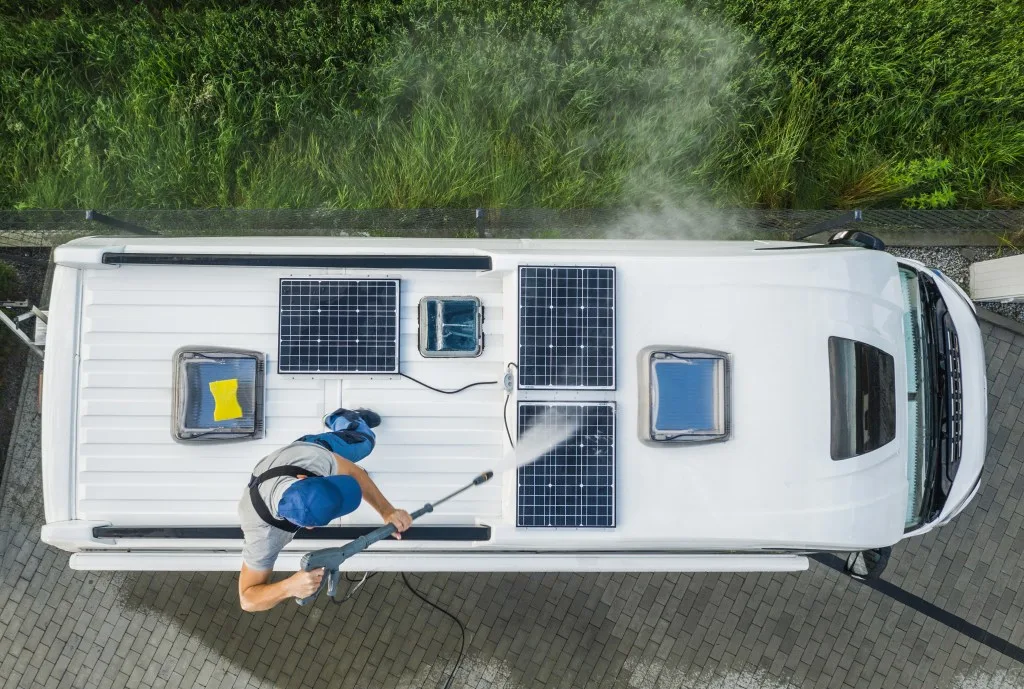
Check the Oil, Filters, and Other Fluids
While this applies to Class A, B, and C RVs, you can also apply this tip to your tow vehicle.
As with any engine or mechanical item, you have to stay on top of your RV’s fluids and filters. These are important to ensure your RV’s components run smoothly and efficiently. When running components with low fluids, you can cause essential components to rub together and strain motors and other items. Using clogged filters can cause air systems to bog down and struggle to vent correctly.
All of these can lead to accelerating the wear and tear on your rig. To extend its life, you want to avoid straining any of your RV systems, especially for extended times. So make sure you’re checking your fluids and filters regularly and changing them at the appropriate intervals.
Maintain the Tires and Wheel Lug Nuts
Failing to maintain your tires or wheel lug nuts can be a disaster. Tire and wheel failures can cause massive amounts of damage to your RV and create accidents. When RVs are involved in accidents on the highway, there’s typically a tremendous amount of damage.
You should be inspecting your tires and torquing your lug nuts before every trip. You’re looking for any signs of damage or uneven wear patterns in the tires. If you notice anything out of the ordinary, you may want to delay your trip and address the tire issue immediately.
Pro Tip: Finding the exact date your RV tires were made is easy with this trick.
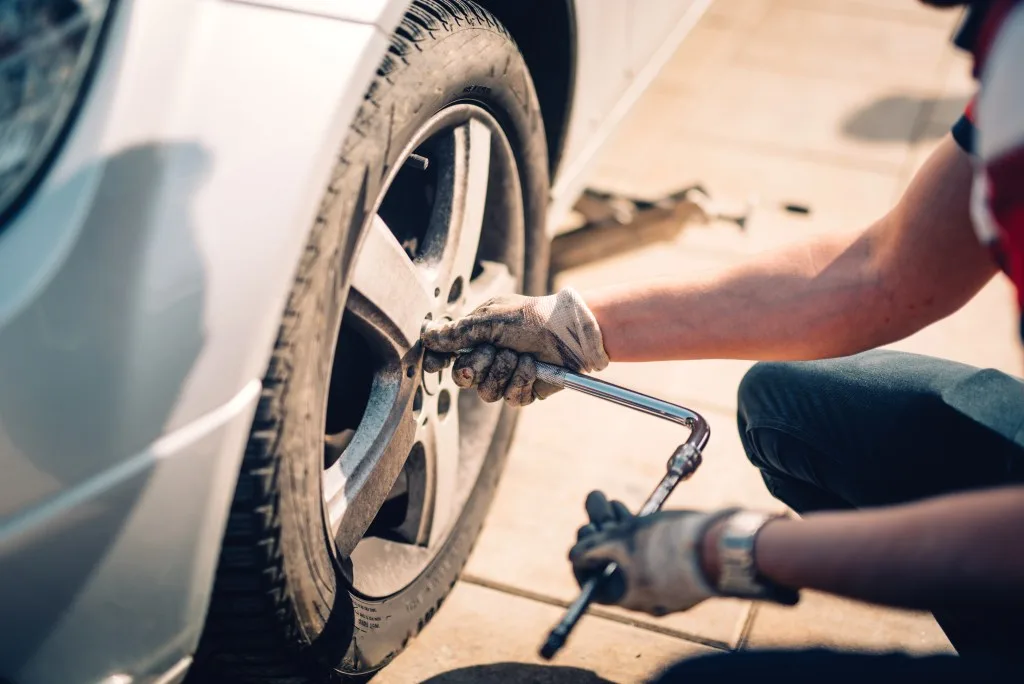
Check the Coolant
You should regularly check the coolant level in your engine. Coolant pulls heat away from the engine to prevent it from overheating or seizing up.
A failure of this magnitude will likely result in a huge repair bill, and you won’t be going anywhere soon. So it’s a good idea to pop the hood and make sure you’re topping off your coolant if it’s low.
Keep the Holding Tanks and Plumbing Systems in Good Condition
Your RV’s holding tanks and plumbing systems are essential for using your rig. Anything that uses water in your RV will depend on them being in good condition. You should regularly inspect the water lines to ensure there are no cracks or leaks in your system.
You should also regularly sanitize your entire water system. This means running a mixture of bleach and water through your system to clean out the lines.
You’ll need to let it sit for 12 to 24 hours and then thoroughly flush your system. You should consult the owner’s documentation to ensure you follow the proper procedures for sanitizing your unique setup.
Chemicals in your tanks: Can You Put Bleach in RV Tanks?
Maintain the Brakes
Your RV’s brake system will help ensure you stop as quickly as possible. Whether it’s the brakes on your motorized RV, or the brakes on your travel trailer, you must maintain them.
Failing to maintain the brakes on your RV could create a hazardous situation. You don’t want to find out that your brakes need maintenance as you go down the other side of a mountain pass or you’re approaching a stale yellow light.
You should check your brake pads every 12,000 miles and replace brake fluid every 25,000 miles. If you’re having your RV serviced, it’s wise to have them take a glance at your brake system. A quality mechanic will quickly check them out and let you know if anything needs to be addressed.
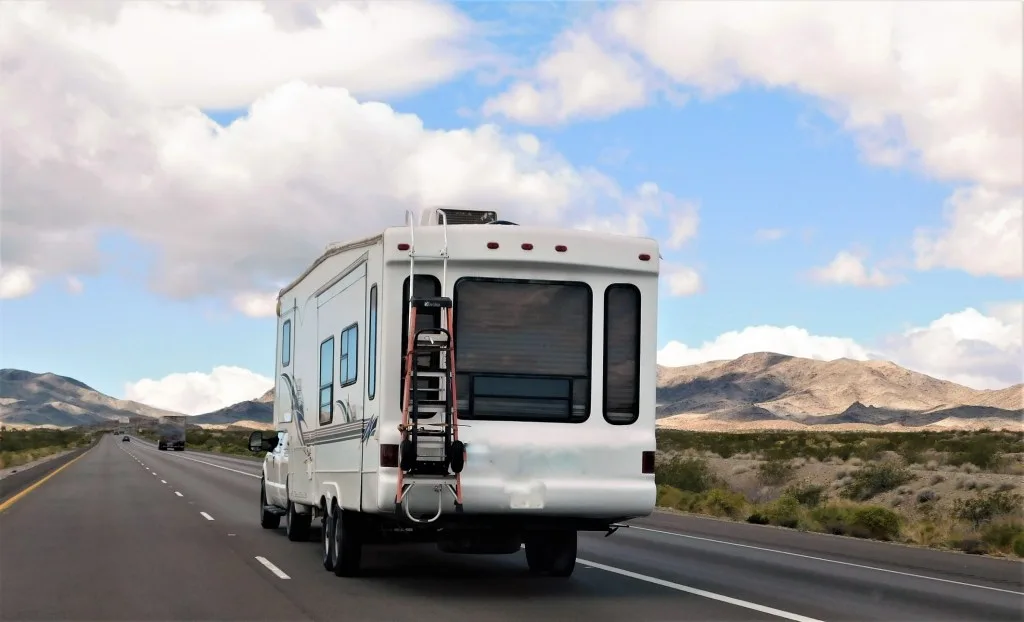
Regularly Inspect and Maintain the Exterior
Caring for the exterior of your RV is incredibly important to extending its life. Failure to inspect and maintain it will cause paint and decals to fade or peel. This can create a very undesirable look and cause your RV to look older than it is. Even if you don’t care about a few peeling decals or faded paint, there’s a bigger reason to maintain the exterior.
When you’re maintaining the exterior of your RV, you’re looking for any signs of damage. You may not notice something hitting your RV or for something to break off during transit. Catching these items as quickly as possible is essential.
Cracks and dents won’t fix themselves and will require your attention. Failure to address cracks can lead to water penetrating your RV, causing extensive damage to your rig.
Make Sure the Electrical Systems are Working Properly
Anything with electricity needs to be working correctly at all times. If you notice your RV’s electrical systems are not functioning correctly, you shouldn’t delay addressing the situation. Unless you know what you are doing, you should have a professional inspect your system.
Failure to do so can result in electrocution or misdiagnosing the situation.
An electrical system failure in an RV can be deadly. A fire can break out, and your entire RV life can be gone in a matter of minutes. The safety of your RV and your fellow travelers is nothing you want to risk.
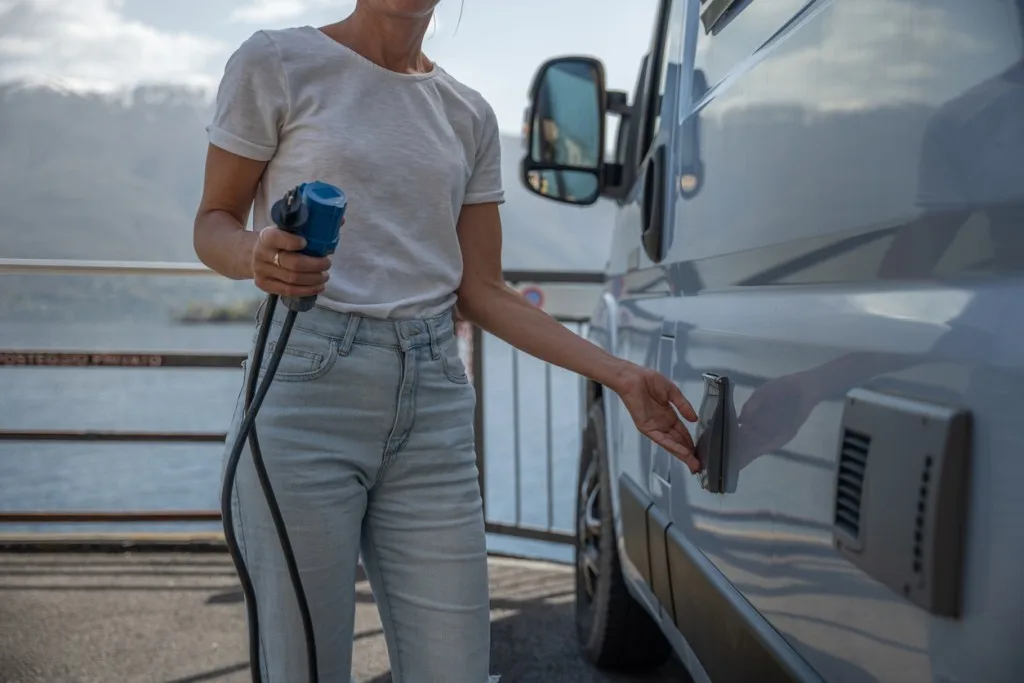
Check Your RV Batteries
Much like the electrical system for your RV, you want to ensure your RV batteries are working correctly. If you have a lead-acid battery, you should check and confirm the water levels are at the appropriate levels. Failure to do so can cause a dangerous situation and even permanently damage your RV’s battery.
It’s also important to keep an eye on the electrical connections for your RV batteries. Look for any signs of corrosion or issues that may require your attention.
If you’ve invested in a large battery bank, you could make an expensive mistake by not maintaining them correctly.
Properly Store Your RV When Not in Use
How you store your RV when not in use can play a major role in extending the life of your RV. This is especially true during the off-season for camping. Properly winterizing your RV is essential if you’re storing your RV in an area that’s prone to experiencing freezing temperatures.
Some RVers use covered storage or have covers for their RVs to keep them safe from the elements. Storing your RV in covered storage can keep it out of the weather and extend its life.
This is especially true if you live in a harsh winter or summer climate.
Pro Tip: Here are the different types of RV storage.
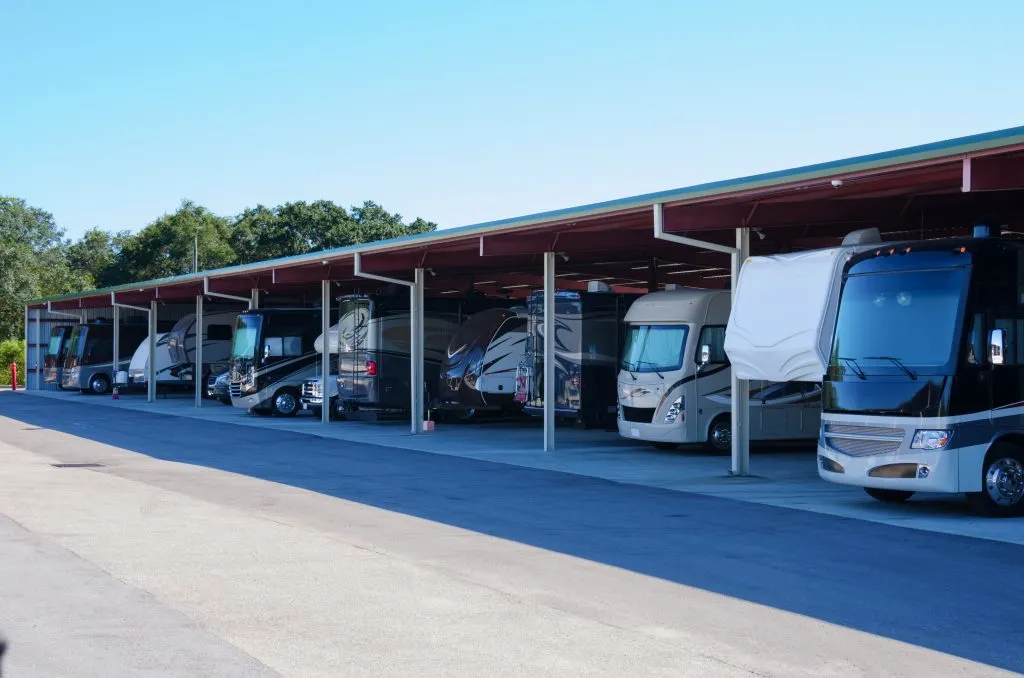
Does Leaving Your RV Plugged in All the Time Reduce Its Life?
It’s generally acceptable to leave your RV plugged in all the time. You will likely notice a slight increase in your electrical bill, but you’ll be able to keep your RV batteries charged and be able to use your RV even when you’re not camping.
However, if your RV’s charger doesn’t have a float feature, you could risk overcharging your battery and causing damage to it. If your RV’s charger has a float feature, you likely have nothing to worry about besides a bit higher energy bill.
A Little Effort Will Extend Your RV’s Life
There’s likely nobody that would say they want to shorten the life of their RV. Owning an RV is a big investment and requires effort to maintain and keep it in good working order.
With a little bit of effort on your part, you’ll have an RV that can last for 10 to 20 years. That’s a whole lot of time for adventures for you and your family to enjoy!
Discover the Best Free Camping Across the USA
To be honest with you, we hate paying for camping. There are so many free campsites in America (with complete privacy).
You should give it a try!
As a matter of fact, these free campsites are yours. Every time you pay federal taxes, you’re contributing to these lands.
Become a FREE CAMPING INSIDER and join the 100,000 campers who love to score the best site!
We’ll send you the 50 Best Free Campsites in the USA (one per state). Access the list by submitting your email below: